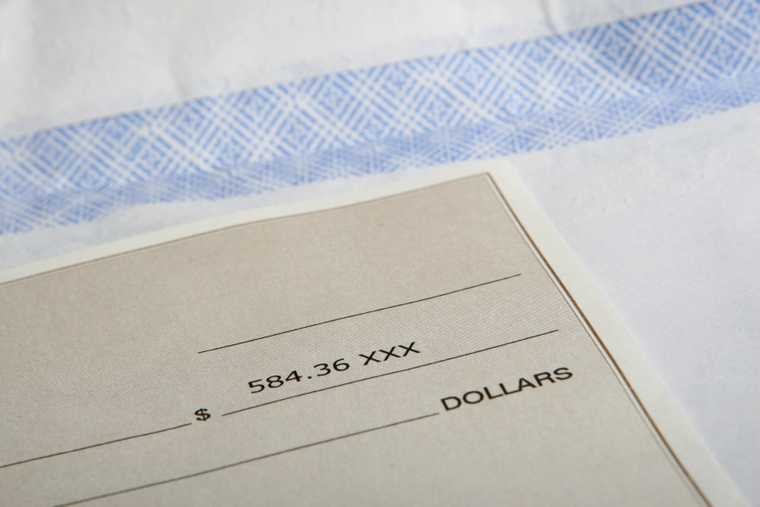Save Time By Qualifying Your Freelance Leads Early
There’s nothing worse than being multiple emails deep with a prospect, then realising they have a £100 budget for a £10,000 project. Well, perhaps if you’ve taken a few phone calls and had a day off work for a meeting to then find out the project is unviable. That would be worse.
An important skill to learn as a freelancer is how to qualify your leads quickly. Freelancers are a one-person operation, so chasing bad leads can seriously impair productivity and consequently, how much money they can earn.
I have wasted lots of time discussing projects only to hear the dreaded, “we’re on a really tight budget” or “can you sit in our office while I watch you work” late in the negotiations. Especially in my early years as a remote WordPress consultant.
A tactic I’ve employed, to great success, is to qualify my freelance leads as soon as possible. Simply put, I ask myself these questions during initial exchanges:
- Is the prospect going to be hard to manage should they become a client?
- Is the briefed project something that suits my skill set and/or of a suitable nature?
- Does the lead have the money to finance the work they’re requesting?
- Can the proposed deadline work with my existing schedule?
- Will the enquirer allow me to work mostly remote?
This not only saves me lots of time but ensures both parties are on the same page at an early stage. More often than not, someone enquiring to hire a freelancer will appreciate the straight-talking approach. It saves them time too after all.
That said, it can be difficult to find out this information from a lead. Questions about the budget, in particular, are often swerved in early negotiation.
I do, however, have some actionable tips that will help you make informed calls on your freelance leads at an early stage.
How Can I Qualify My Freelance Leads Early?
Add Key Fields To Your Contact Form
Assuming you have a website (what freelancer doesn’t?!), an easy win to check the quality of your freelance enquiries is to add specific fields to your website’s contact form.
The key here is to not bloat your standard form too much so that it gets filed under “I’ll do this later”, while also adding the right amount of fields that can help provide the data you need to answer the questions I mentioned earlier. It’s about finding the right balance.
Here are the bare minimum fields (and example placeholders) I include in my contact forms:
- Name (John Smith)
- Email Address (john@smith.com)
- Budget (£4,000)
- Deadline (Within a month)
- Project Details (This project is for Company X and requires front-end and back-end WordPress development)
At the time of writing, it looks like this:
Only budget and deadline are outside of what you’d expect to see on a standard contact form. However, they’re super important in measuring the quality of any freelance prospect.
The budget field gets an answer to the awkward question off-the-bat. Nine times out of ten you will be able to at least _disqualify _a freelance lead by the answer to this field.
Adding a deadline field to your form will usually let you know if a project is worth chasing straight away too. If you’re booked for a month and the need is immediate, for instance; you can let that one go.
If you’re afraid that potential clients won’t want to fill out many fields in a starting enquiry form, I’d counter that with the point that if they can’t take the time to answer a couple more questions, what makes you think their communication will be any better once the project kicks off (see question 1 from the earlier list!)?
In my experience, the more accurate the initial contact, the better quality the lead.
Ask The Right Questions
If you don’t have much detail in your initial enquiry, it’s time for you to ask some questions.
Depending on the information I already have, I pose relevant questions to the prospect that will help answer my qualifying criteria. For example:
- Do you have a brief containing specific requirements? (A good prospect should be organised and know exactly what they want from you).
- How much are you looking to spend on this project? (Is the potential client aware of your rates? Are they just tyre-kicking?).
- Ideally, when would you like to launch? (Is this feasible in terms of how long the work will take? Does this date fit your schedule?).
- My day to day requires me to work remotely, does this work for you? (Be clear with your preferences).
Most of the time, that’s all you’ll need. Be precise and to the point.
Negotiation should not just be about the client outlining their requirements for the engagement; spell out your expectations early too.
Don’t Meet Too Early
Try to qualify freelance leads before spending time in meetings. You can ordinarily find out if you’re a good fit for each other way before this.
Arranging a meeting with a potential client as the first point of contact is something I rarely do. This might not be the typically done-thing in terms of business in general, but hear me out.
As a freelancer, contractor or consultant, taking time out of your day to meet with a loose prospect is a big outlay. For myself, as a work from home freelancer, the day is pretty much gone after I’ve headed out in the car or taken a train to a meeting. That’s a day I could have been paid for.
In my opinion, you should not meet with someone who can’t explain their project requirements in writing or during a short phone call first.
When a business prospect wants to meet right away, I try to steer them into giving me more information before-hand. Specifically, details that will help answer my qualifying questions. If putting a face to a name is something they like to do, I offer a video call afterwards. If they persist in wanting to physically meet before offering up any details, I more often than not let our engagement pass.
While sales are part and parcel of a freelancers role, you have to be smart about it. Don’t meet prospects with vague briefs too early.
Read The Warning Signs
Over the years, I seem to have gained instinctive detection of likely problematic clients. Perhaps it’s not so much instinct as it is experience.
Taking note of the early warnings signs can save you so much time when qualifying leads. The obvious ones to look out for are:
- The offer of company shares and/or exposure in exchange for your services. (Don’t devalue your service by working for, what will likely turn out to be, nothing).
- A mention of a low/tight/small budget, relative to the work requested. (Low budget clients are often the most demanding too).
- Super close deadlines cited. (Rush jobs are mostly poorly briefed, likely incurring scope creep).
- Excessive meetings and phone calls requested. (Being micro-managed is not fun and will seriously hinder your output as a freelancer).
- Unclear and/or sporadic communication. (Will it be hard to decipher the client’s comments? Are they serious about the arrangement? Will they reply in a timely nature during the project?).
- Not addressed by name in emails. (Do they know why they want to hire you in particular? Are they sending this email to you only or using a scattergun approach?)
Get A Deposit
The only true way to test if your lead is serious is for them to financially commit. Let’s face it, a client isn’t fully committed to a project until payment has been made.
Imagine booking out weeks in your calendar only to be let down on the day you’re due to start work. This sucks. Not only would you lose money for the project, but you’d also be left with a big gap in your schedule. I learned quickly to take a deposit as soon as an agreement is reached.
If your lead is serious about hiring you, they will be happy to pay a deposit. My usual terms are 50% of the project cost up front, with the remaining 50% due on completion. This shows commitment from both parties and allows you, the freelancer, to qualify your lead without much doubt.
Wrap Up
Being able to spot a tyre-kicker from a solid lead is an essential skill in any freelancers’ toolbox. The ability to identify this as early as possible in business negotiations is even more essential. Remember to:
- When a lead comes in, ask yourself your qualifying questions.
- Add relevant additional fields to your website’s contact form.
- Ask the right questions to get the information you need to check the prospect’s eligibility.
- Only take business meetings when you’re confident the project is a good fit.
- Take note of any warning signs from the off. Trust your gut.
- Get a deposit payment to ensure your client’s commitment.
Try putting these tips into action within your freelance business today!





